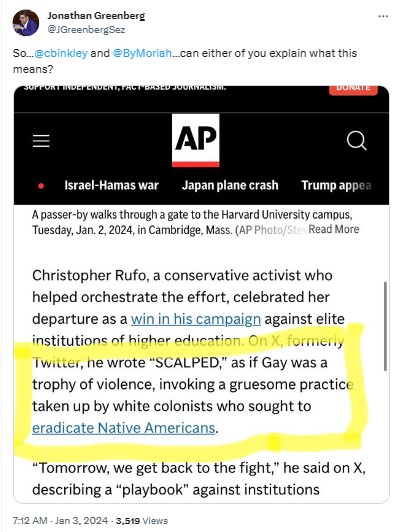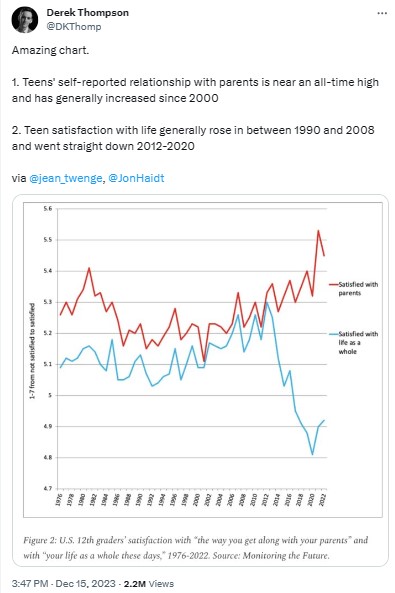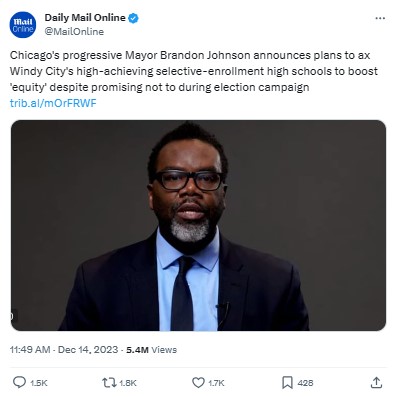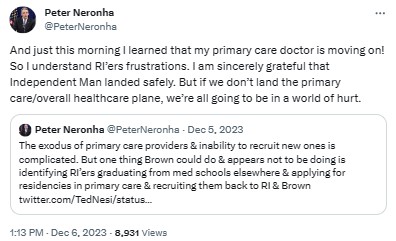Honestly, I expected the COVID experience to put an end to the high-school-civics-project of banning single-use plastic bags, but stores’ bag dispensers now sit empty, and Rhode Islanders have another reason to lean toward shopping in Massachusetts or online.
In Rhode Island, our legislators have a chronic difficulty understanding consequences and the availability of alternatives. A state the size of ours has relatively inconsequential influence on the amount of plastic in the oceans and far from total control of the plastic litter in our state, and there are no suitable alternatives to plastic bags, with the possible exception of paper bags, which we were told we mustn’t use when I was a kid. If there were suitable alternatives, people would likely use them without being forced.
One would have thought that concerns about repeat-use bags for things like groceries during COVID would have at least given our mandarins a smidgen of understanding that they cannot foresee every consequence and micromanage life. Bags for carrying raw food home from the store, for instance, are not conducive to multiple uses, unless we’re to add shopping bag laundry to our list of nuisance activities.
That is not to suggest, however, that the state should exempt some products from a ban while leaving it in place for other products. Everything has consequences, and minute regulations ripple throughout the economy, ultimately harming somebody, usually the most vulnerable. Even on the environmental front, laundering shopping bags has an environmental cost, as does the packaging and shipping of goods ordered online.
Rather than focus on crumbling infrastructure and failing schools, the people we’ve elected and whom we supply with copious funds choose to put on their Master of the Universe hats and tell other people how to conduct their lives. Two possibilities arise: either the state will try increasingly intricate regulations to minimize the consequences of its moral preening or people will adjust their behavior without bothering to make a stink. For one thing, the less convenient shopping becomes, the more people will simply shop online, which will destroy jobs and (more subtly) human interactions in the state.
Perhaps, like most of the people in and around state government, you don’t work in retail, so your job won’t immediately be threatened. Just wait, though. There is surely something you do every day that bothers somebody, and in Rhode Island, government officials are in the business of helping them come for you.
Featured image by Justin Katz using Dall-E 3.
[Open full post]I wondered, the other day, whether young Americans are so much ignorant of history as they are indifferent to the truth. Here’s another shocking datapoint in that set:

Following the trail of links suggests that the culprit is not ignorance or, for that matter, indifference. This is part of an approach. A filmmaker (presumably of an activist bent) made a film about a document apparently by the lieutenant governor in Massachusetts Bay, and an AP “reporter” presented it in a way designed to solidify and expand the impression that it was widespread and the simplistic impression that aggression was entirely one way (rather than part of the jumble of people during more-violent times). Now, other AP “reporters” take the next step by defining “scalping” as a practice “taken up by white colonists,” expanding the impression once again. The next step will be to remove the already tenuous hint that the colonists might have initiated the practice to advance the rewritten history that all evil comes from white men, and everybody else is innocent or, at worst, merely reacting to white aggression.
Keep your printed history books, folks. We may not be far off from the possibility of tracing these claims back through history as we move increasingly on the shifting sands of the Internet.
[Open full post]John DePetro and I discussed this a few weeks ago, but the topic is worth a short, written note, too, because the vignette presents too perfect a lesson:
While tens of thousands of Rhode Islanders were stuck in traffic for upwards of three to four hours, Governor Dan McKee was attending a political fundraiser for Rhode Island Department of Transportation Chief of Staff John Igliozzi on Tuesday night. …
The fundraiser was held at “The Social” at 1449 Mineral Spring Avenue in North Providence. Igliozzi is expected to run for Rhode Island Attorney General in 2026.
Igliozzi, who is following family tradition in his involvement in Rhode Island government, was a long-time member of the Providence City Council and became its president when Sabina Matos took the appointment to fill Dan McKee’s lieutenant governor position, when he took the appointment to fill Gina Raimondo’s gubernatorial seat, when she took the appointment to work in the Biden White House.
Our state government is filled with such people. There is nothing wrong with building such a life; indeed, from some perspectives, it could be seen as a life of dedication to the city and state. However, when that culture becomes too entrenched, and when there is no opposing set of insiders in another party to throw randomness and cooperation into the system, it’s a problem.
Thus, during a time of infrastructure calamity resulting from poor government services, the governor is at a fundraiser for a guy who notched up the insider ladder along with him a few years ago, who is a leader in the department that had just experienced such a massive failure, and who is preparing to take another horse in the state government merry-go-round… and there’s nobody in a political position to give Rhode Islanders a way to have an electoral say on the matter.
[Open full post]So much of Rhode Island’s predicament can be explained by incentives. People who rely on government for their prosperity, for instance, have a great deal of incentive to manipulate the processes thereof, whereas our community lacks institutions with incentive to counterbalance them politically. Something similar and related — though much broader on a social scale — is observable in the news and the stories we tell.
Not that long ago, newspapers had incentive to find success stories in their communities, at whatever level they covered. People subscribed to see their families and friends receive recognition, and then they bought the photos that went with the stories. They took out ads even just to announce happenings in their lives. Whether because such stories can’t survive in a quick-read, free-based, social media environment or because journalists moved from blue-collar workers to over-educated scion of the elite, the stories and the newspapers are less robust than once they were.
At the same time, we’ve entered the world of PR, especially in government. Whereas newspaper editors used to collect the press releases of organizations and make decisions about the size, placement, and mix of the articles, well-paid government PR flacks now craft articles and posts, and their content permeates social media, reaching those who follow the government accounts and promoted by those with a direct financial interest in the content.
So we see another type of story promoted more frequently. Modern success stories are not about achievement but receipt. For instance, we don’t see a story about a student from Rhode Island College who is working two jobs while studying a practical topic because he or she knows the degree will lead to a better life as part of a meritocratic plan, advancing his or her family generation by generation. Rather, we see a story about a student who was working while en route to certification as an art teacher who now does not have to work because Rhode Island taxpayers will be covering his tuition.
Don’t underestimate the importance of the cultural stories we tell each other. If we celebrate people who resolutely overcome obstacles with their own effort and grit, we’ll get more Americans growing the economy as they pull our society forward based on their own initiative and incentives. If we celebrate people who fill out applications for handouts at the expense of others whom politicians force to pay, then, well, we’ll get more of that.
Rhode Island may have removed the word “plantation” from its official name, but the state has internalized the idea as its social model. On the government plantation, special interests cultivate recipients for public services and then go in search of servants to pay for those services. Meanwhile, we’ll see stories touting the stress relief afforded to recipients who don’t have to work too hard, but other stories, especially about Rhode Islanders whose businesses can’t survive the heat of local public policy, go untold and are maligned when mentioned.
Featured image by Justin Katz using Dall-E 3.
[Open full post]The following chart is definitely interesting, but I fear our society has lost appreciation for the fact that parents’ fundamental responsibility is the blue line. If that’s down, they’re failing, no matter what the red line does.

Imagine taking successful schools away from children and their families in the name of a cult-like belief like “equity”:

I know an education student who had the opportunity to be paid much-needed income from a school that would satisfy her final requirement for a degree, but her college told her she couldn’t. Other students aren’t being paid, so it wouldn’t be “equitable” to allow her. Meanwhile, the elementary school in question is having trouble finding teachers and substitutes.
Whether this reflects a progressive social-death cult or the cultish beliefs are cover for corruption in an insider system doesn’t much matter. A civilization that actively prevents people from maximizing their productivity is doomed to fail.
[Open full post]This has been lingering around my to-do list for a while, but the problem is only getting worse, so for the foreseeable future, it’s an evergreen topic in Rhode Island:

Yes, this is a massive problem permeating all of our society, and there’s only so much a small state like Rhode Island can do about global matters, but everything I can think of that Rhode Island does, or that its current political class would be willing to do, makes things worse for us.
In one bucket, put all of Rhode Island’s impositions. The state has high taxes, of course, which make it less attractive to have a high-earning job in this area. But we also impose all sorts of labor mandates, from a high minimum wage to mandates for paid time off to high insurance mandates that drive up costs. Then there are healthcare and insurance mandates, which add additional costs into healthcare, as well as burdens for providers, including documentation. Naturally, the artificially high price of our “green energy” requirements drive up the cost of living and doing business here.
Now turn to the sort of life young high-earners tend to want to live. Even East Greenwich can’t keep up its school system, and as we’ve just discovered with the Washington Bridge, we’re subject to bad roads and (now) the threat of not being able to get where you need to go elsewhere in the state.
But that’s not all! The growing influence of progressives in our state government and the labor unions that constitute our shadow government mean people who make a lot of money are constantly in the crosshairs… unless they work for the state, of course, or are in another protected insider group. If they’ve invested years of their lives and hundreds of thousands of dollars in education and are working independently, they’re a target, at least for the insinuation that there must be something morally wrong about them.
Unfortunately, I’m not in a position to do a think-tank-style research report on what policies are truly affecting doctors and what reforms might help (Although, anybody interested funding one should contact me!), but you can bet policymakers in our state haven’t a clue and aren’t seriously interested in developing one. Indeed, they probably deep down suspect that too much investigation would turn the spotlight of culpability on them and their allies.
So, as written by Attorney General Neronha (who, by the way, gives no indication that he’d be any different among his government peers), “we’re all going to be in a world of hurt.”
[Open full post]When a poll came out about a month ago finding 20% of young Americans (18-29) believe the Holocaust to be a made-up incident, with 28% stating that Jews have too much power in the United States, I had the same reaction as many. This is not a far-right phenomenon, but a far-left one. Our education system, from pre-school through grad-school is increasingly radical to its core, with scarcely an opposing view, so extremism is sure to grow, like black mold.
In recent weeks, however, with objectively pro-Hamas protests becoming the latest excuse of radical movement in the West to disrupt everybody else’s life, I’ve been wondering if the truth might not be even worse. One suspects that if this same movement required belief in the Holocaust to be moral demand, the numbers would shift, such that scarcely a young adult would doubt it.
It’s not that they don’t know the truth. It’s that they don’t care. They’ve been fully drawn into the worldview that the truth is whatever you need it be to serve your interests at the moment.
[Open full post]On WNRI 1380 AM/95.1 FM, John DePetro and Justin Katz discuss:
- McKee searches for something to call a success.
- More Heritage Hall of Fame board members show their (low) level of dedication.
- Bostom undermines his cause.
- Sanchez stumps for Hamas.
Featured image by Justin Katz using Dall-E 3 and Photoshop AI.
[Open full post]First, many Democrats truly believe (or at least are happy to claim to believe) there’s a big racist contingency among Republicans that I simply have not seen, at least in several decades.
Second, progressive Democrats will happily take the conflicting position and insist that the Civil War actually had nothing to do with slavery when their purpose is to malign the United States as no different than it was in the antebellum period. In those contexts, they’ll claim the Civil War was exclusively about the economic or political interests of white people, with slavery as little more than an excuse, and I can’t remember ever seeing their fellow Democrats express disapproval.
Third, partisan activists in the mainstream media can still get their constituencies riled up to make minor bumbles from Republicans, which are understandably more common in a live setting, seem like major revelations about their true beliefs.
[Open full post]





